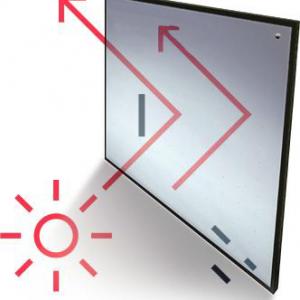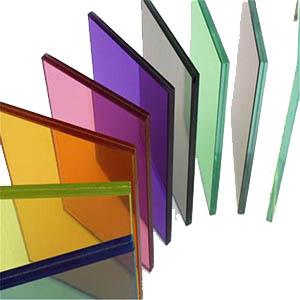3D Systems validated two new DMP 3D printing alloys with automotive and aerospace potential
US 3D printer manufacturer aluminum window suppliers 3D Systems has added two new alloys to its material mix, which are specifically designed to produce high-strength, corrosion-resistant parts when used with its proprietary direct metal printing platform.With its "Certified Scalmalloy", the company certified a durable aluminum material that "bridges the gap between traditional casting alloys such as AlSi10Mg and Ti Gr23" and has an excellent strength-to-weight ratio. On the other hand, the company's "Certified M789" is a cobalt-free alloy with high hardness and wide processing window, especially when printing on DMP Flex, Factory 350 and ProX DMP 320.
These metals were designed with APWORKS and BÖHLER Edelstahl, and have been specifically certified for use with 3D Systems machines, and can now open new applications in the automotive, aerospace, mold making and energy sectors for their respective users.
"Using M789 as part of our metal 3D printing solution can provide our automotive customers with greater precision," explained Kevin Baughey, head of 3D Systems' transportation and racing department. "This allows them to use the technology for applications that require higher fidelity and thinner walls, such as mold inserts with conformal cooling and tire tread molds."
"Customers in our automotive industry are increasingly relying on additive manufacturing to advance and accelerate their innovation."
Scalmalloy from 3D Systems is designed for 3D printing of lightweight, load-bearing components, with a tensile strength of 520 MPa and a yield strength of 480 MPa. Therefore, in internal tests, the material proved to be much stronger than AlSi10Mg, and is especially good at producing high-strength, corrosion-resistant parts.
3D Systems has also worked with APWORKS to develop an ideal set of parameters for processing materials on its Factory 350 Flex 350 system, which can be applied using its 3DXpert software. According to the company, when these parameters are used, the alloy can produce robust structural racing components, semiconductor components, and aerospace components such as filters and waveguides.
"Scalmalloy has a very attractive strength-to-weight ratio and is more suitable for 3D printing than many traditional high-strength aluminum alloys," said Dr. Michael Shepard, Vice President of 3D Systems Aerospace and Defense. "These performance characteristics make it ideal for aerospace applications, and we are excited to see how our customers will continue to push the limits through their innovation."
"Adding Scimalloy parts' additive manufacturing capabilities to our product portfolio is an important step forward; especially for our aerospace customers."
With its new "Certified M789" alloy (also known as BÖHLER M789 AMPO), 3D Systems has certified a material that has been optimized for creating ultra-high-strength molds and tools. This metal not only does not contain cobalt, which is harmful to the environment, but can also be further toughened to reach the Rockwell hardness rating of 52 HRC.
Very similar to Scalmalloy R&D using APWORKS, 3D Systems has also partnered with GF Machining Solutions to certify M789 to achieve highly repeatable part quality and performance results. To this end, the company has developed an extremely corrosion-resistant steel that is ideal for the production of tools with long-term repeated applications and components that need to be stable at high temperatures.
Because of these qualities, the material can therefore be used to make conformal cooling mold inserts, and its durability makes it a potential drill and cutting tool application in the energy sector. Similar to 3D Systems' Scalmalloy, M789 also has important automotive application prospects. Its reliability after continuous use means it may be an ideal choice for 3D printing tire molds and transmission systems or shaft components.
For those who are interested in learning more about 3D Systems materials, Scalmalloy and M789 will both be on display at RAPID+TCT from September 13th to 15th, 2021. At its booth (E7601), the company offered to "explore these materials" and through its application innovation team to help customers achieve the best settings for processing them.
When 3D Systems launched Scalmalloy, metal was increasingly used in automotive 3D printing applications, and it is now even approved for use in Formula One racing cars. The Alfa Romeo Racing team immediately used this to 3D print 304 parts of the 2021 car, 36% of which were manufactured by Scimalloy.
Just last month, the UK's Digital Manufacturing Center (DMC) also became an approved supplier of Scalmalloy 3D printed parts. It is said that DMC has also cooperated with APWORKS to produce such high standard parts, and they have promoted the organization to the top 1% of global Scalmalloy parts suppliers.
In other areas of the automotive industry, from Bugatti brake calipers to Fiat Chrysler suspension parts, 3D printing is being used to produce a variety of products. As Scalmalloy is now certified on 3D Systems' DMP machines, ultra-durable metals will further accelerate this trend and find new applications in the near future.
To keep up with the latest 3D printing news, don't forget to subscribe to the 3D printing industry newsletter or follow us on Twitter or like our page on Facebook.
To learn more about additive manufacturing, you can now subscribe to our Youtube channel, which includes discussions, presentations, and live 3D printing.
Are you looking for a job in the additive manufacturing industry? Visit 3D printing jobs to learn about a range of roles in the industry.
Paul is a graduate of history and journalism and is keen to find exclusive news about the latest technology news.
 English
English Russian
Russian




